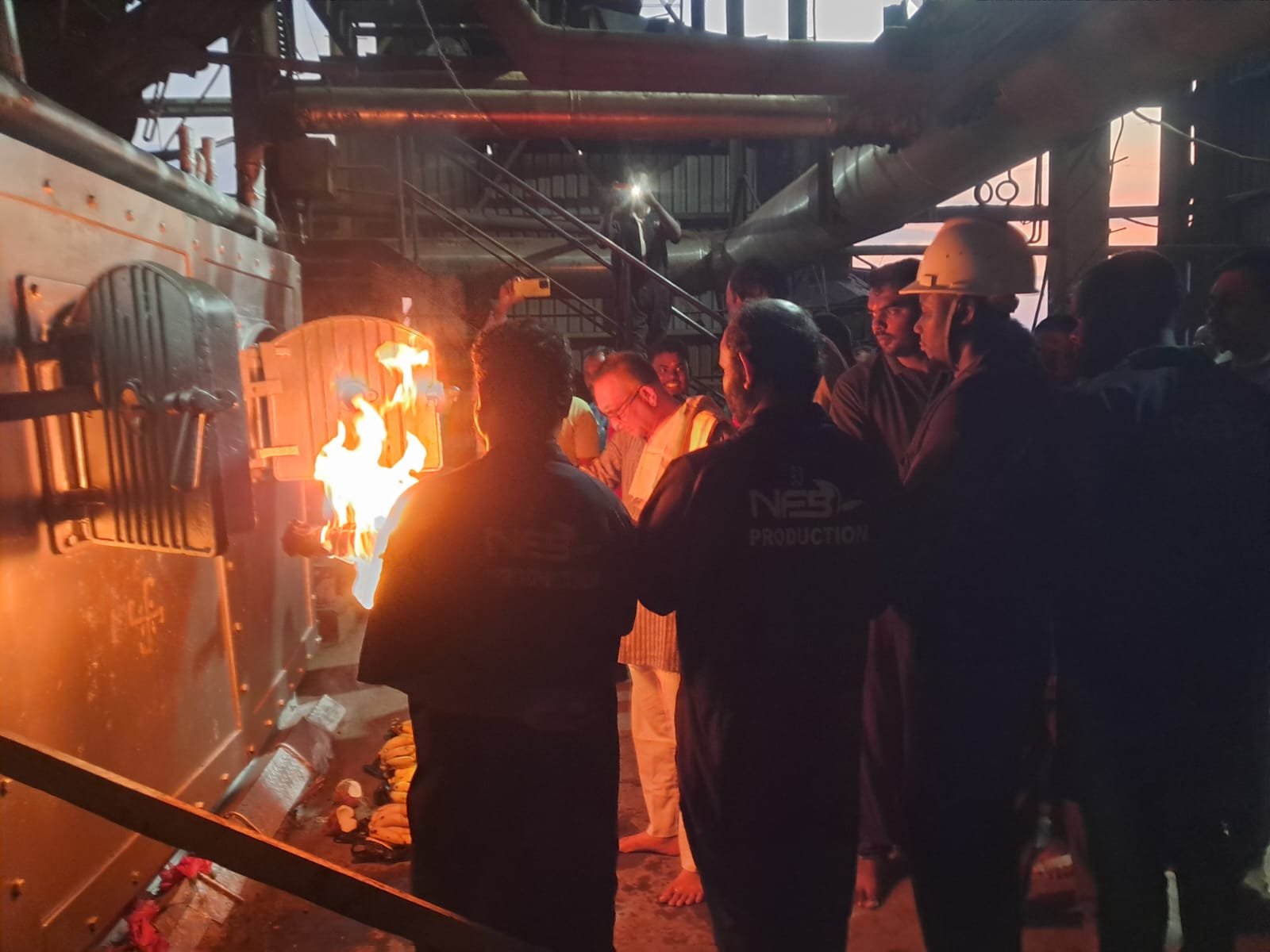Industrial boilers are indispensable across various industries, providing an efficient and cost-effective way to generate steam energy for numerous applications. These powerful vessels play a critical role in process heating cycles and heating utility applications, ensuring seamless operations in sectors such as manufacturing, power plants, food processing, and pharmaceuticals. Boilers utilize various fuel sources, including natural gas, coal, biomass and electricity, to produce heat, which is then transferred to water-containing tubes to generate steam. This steam is harnessed to power machinery and optimize production processes, making industrial boilers an essential component of modern industry.
How Do Industrial Boilers Work?
The functioning of industrial boilers combines fundamental thermal science with modern engineering innovations. Boilers are designed with multiple compartments to enhance efficiency and ensure safety. Here’s how they operate:
1. Heat Source and Placement
– The heat source and the water holding arrangements are strategically placed in separate sections.
– The heat source, which could be natural gas, coal, biomass or electricity, generates high temperatures that heat the water.
2. Steam Generation
– Metal tubes connect the heat source to the water vessel, allowing efficient heat transfer.
– As heat is absorbed, the water transforms into steam, which is then collected for use.
3. Steam Collection and Pressure Build-Up
– The generated steam is accumulated in a Vessel called Steam Drum.
– This builds up the necessary pressure to generate sufficient energy for industrial applications.
4. Safety Mechanisms
– Boilers are fitted with safety valves and pressure control mechanisms to prevent accidents caused by excessive pressure buildup.
– Routine maintenance and monitoring are crucial to ensuring safe and uninterrupted operations.
Types of Industrial Boilers
Industrial boilers are categorized based on their design and application. Some of the most common types include:
1. Fire-Tube Boilers
– These boilers are best suited for lower-pressure applications.
– Hot gases pass through tubes that heat the surrounding water, generating steam efficiently.
2. Water-Tube Boilers
radd- Ideal for high-pressure industrial applications.
– Water circulates through tubes while hot gases pass over them, resulting in rapid steam generation.
3. Fluidized Bed Combustion (FBC) Boilers
– One of the most widely used industrial boilers today, FBC boilers enhance fuel efficiency by ensuring complete combustion of fuels.
– These boilers are highly adaptable and can burn a wide range of fuels, including biomass and other alternatives.
4. Electric Boilers
– These boilers utilize electricity as a clean energy source, making them environmentally friendly and requiring less maintenance.
5. Biomass Boilers
– With the increasing demand for sustainable energy solutions, biomass boilers have become a preferred choice.
– They use renewable energy sources such as wood pellets, agricultural residues and other biofuels, significantly reducing carbon emissions.
The Growing Trend of Biofuels in Boiler Technology
As industries strive to enhance both efficiency and sustainability, biofuels have emerged as an effective alternative to traditional fuels. Not only do biofuels contribute to cleaner steam generation, but they also improve overall boiler efficiency. At Dehu Engineering, we are committed to integrating advanced fuel options into boiler systems, ensuring optimal performance while reducing environmental impact. Our expertise extends to servicing all types of boilers and providing essential components such as tubes, membrane panels and coils, making us a one-stop solution for industrial boiler needs.
Why Are Industrial Boilers Important?
Industrial boilers offer several advantages that make them indispensable in modern industries:
– Energy Efficiency – Boilers provide a cost-effective and reliable way to generate the necessary energy for production.
– Sustainability – With technological advancements, modern boilers incorporate eco-friendly features that reduce fuel consumption and emissions.
– Operational Reliability – Industrial boilers, when properly maintained, ensure a continuous and stable steam supply for critical industrial processes.
Conclusion
Industrial boilers serve as the backbone of many industrial operations, delivering efficient and sustainable steam generation for various applications. As industries move toward cleaner and more efficient energy solutions, the role of advanced boiler technology, such as FBC and biomass boilers, is becoming increasingly significant.
At Dehu Engineering, we take pride in offering high-performance industrial boilers and providing expert services tailored to diverse industrial needs. Whether it’s supplying essential boiler components like tubes, membrane panels & coils or providing complete servicing solutions, we are dedicated to ensuring optimal efficiency and reliability in every boiler system. Contact us today to learn how our expertise can optimize your production processes and elevate your industrial operations.
– ✍ Sonu Vinoth Kumar



